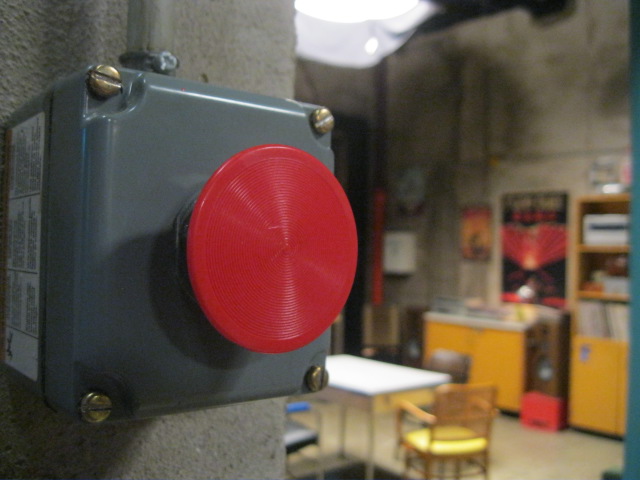 This year in television, of course, will be remembered for the writers’ strike. Now set to enter a third month, no talks are scheduled and no end is in sight, although this whole deal with David Letterman and his Worldwide pants getting to return to the air Wednesday night with his writers while Jay Leno, Conan O’Brien and the others do not might be the wedge that forces others back to the table. Letterman should draw huge numbers Wednesday night as viewers starved for their late night fix tune in to see if he slags the producers and sticks up for the guild. Letterman usually steps up in situations where the focus is real and important (as he did after the 9/11 attacks). Look for plenty of “Stupid Network Tricks” and “Great Moments in Network Presidential Speeches” to follow.
This year in television, of course, will be remembered for the writers’ strike. Now set to enter a third month, no talks are scheduled and no end is in sight, although this whole deal with David Letterman and his Worldwide pants getting to return to the air Wednesday night with his writers while Jay Leno, Conan O’Brien and the others do not might be the wedge that forces others back to the table. Letterman should draw huge numbers Wednesday night as viewers starved for their late night fix tune in to see if he slags the producers and sticks up for the guild. Letterman usually steps up in situations where the focus is real and important (as he did after the 9/11 attacks). Look for plenty of “Stupid Network Tricks” and “Great Moments in Network Presidential Speeches” to follow.
The writers strike, however, has distracted attention from an even more dire situation: the television business is in a free fall. Last spring, a big, fat chunk of the audience disappeared from the weekly Nielsen/BBM charts. Even hit shows, such as Desperate Housewives, Lost, Heroes, Ugly Betty and—gasp—American Idol, saw sharp declines in weekly viewership. This was blamed on several factors, including an earlier than usual shift to daylight savings time.
Less laughable and more significant, however, was the jump in the number of viewers who saved and stored shows and watched them when they wanted to watch them as opposed to the traditional network schedule. Whether it was through TiVo or PVR digital boxes, save now play later was fast becoming a growing chunk of the network audience.
The chill in network boardrooms on both sides of the border was the fact that these devices allow viewers to scan and skip commercials. If the trend continues, at what point will advertisers demand to pay less for diminished returns (no matter how the webs try to spin it that scanned ads still register)?
An even more chilling conclusion for programmers: viewers have just had enough. Boomers—who grew up with TV and remain the most loyal audience—are bored and have seen it all. Viewers under 30 would rather go on Facebook or watch YouTube. Almost overnight, it seems, the Box has been abandoned like last week’s Christmas wrapping.
Worse, all of this happens smack in the middle of TV’s worst season ever. None of the new shows have clicked. Older hits are fading fast. Even new reality shows, such as Kid Nation and Clash of the Choirs, are tanking. It is almost as if that big fade to black which ended The Sopranos was when the whole TV deal went off. Tony and his family didn’t die, TV did. The end.
With pilot season in peril due to the strike, next season could also go down in flames. There are one or two theories out there that suggest the networks might even be okay with that. Blowing up a model that no longer works may not be such a bad thing. Hosting lavish up fronts in May and June for seven or eight media buyers who control everything seems like an unnecessary waste in an era of belt tightening. If ad buying changes, you bet TV will change. All the economic models are being heaved overboard. For years the networks have been paying stiff licensing fees for the 80% of shows that fail in order to share the wealth on the 20% that succeed. Writers, and soon directors and actors, are demanding more of what the networks claim is an ever shrinking pie. Or maybe not. New media will emerge as big media. The nets themselves already claim it is a billion-dollar business. Its just not quite there yet and everybody is panicking.
For me, no more telling sign of the change came than at the annual Christmas family gathering. Like, I suspect, in thousands of households, as we drew away from the dinner table, lap tops came out where once TV’s came on. People gathered to see “Dutch TV Presenter Won’t Stop Laughing” or “Brian & Katie’s Evolution of Wedding Dance” on YouTube instead of It’s A Wonderful Life for the zillionth time on NBC or CBC. All the Whos down in Whoville on watching YouWhoTube. Or so it says here on the Internet.

Prev Post

Next Post





1 Comment
My favoriate tv shows:
Baby Einstein DVD Box Set
Disney DVD Box Set
Family Guy DVD Box Set
House MD DVD Box Set
NCIS DVD Box Set
Ugly Betty DVD Box Set
X-Files DVD Box Set
P90X DVD Box Set
P90X Fitness DVD Box Set
Friends DVD Box Set
Friends DVD Box Set